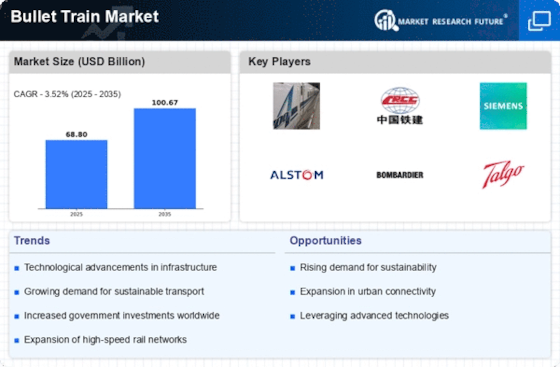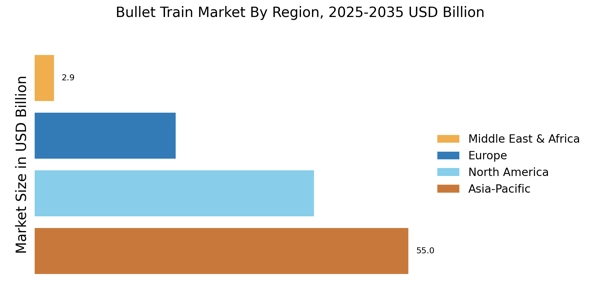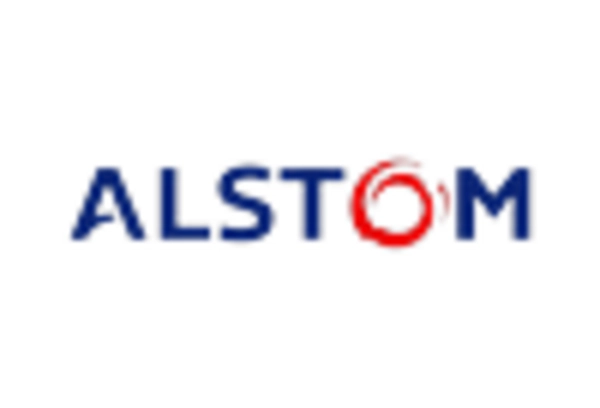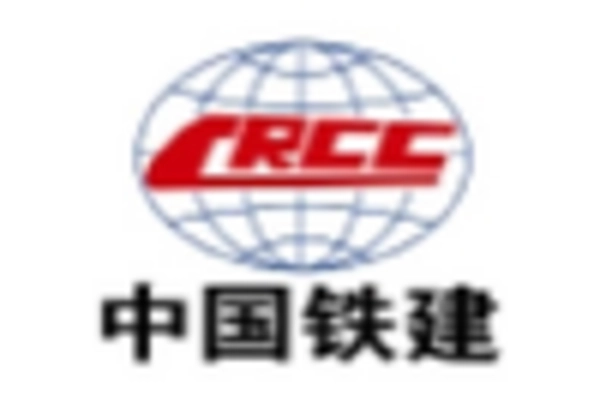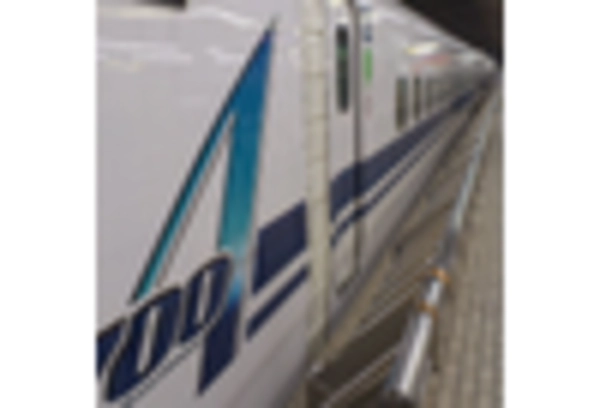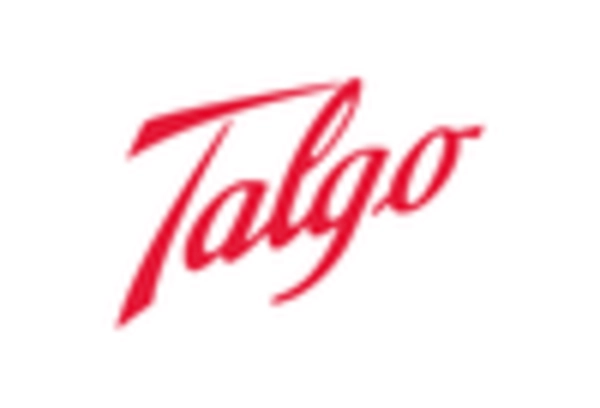Increasing Urbanization
The Bullet Train Market appears to be significantly influenced by the trend of increasing urbanization. As populations in urban areas continue to swell, the demand for efficient and rapid transportation solutions intensifies. Urban centers are often characterized by high traffic congestion, which necessitates the development of high-speed rail systems to facilitate smoother commutes. According to recent data, urban areas are projected to house over 68% of the world's population by 2050, thereby amplifying the need for bullet trains. This trend not only enhances connectivity between cities but also promotes economic growth by reducing travel time. Consequently, the Bullet Train Market is likely to experience robust growth as governments and private entities invest in high-speed rail infrastructure to accommodate urban populations.
Technological Innovations
Technological innovations are a driving force behind the evolution of the Bullet Train Market. Advances in engineering, materials science, and information technology are enabling the development of faster, safer, and more efficient high-speed trains. For example, the introduction of magnetic levitation technology has the potential to revolutionize train speeds, reducing travel times significantly. Furthermore, the integration of smart technologies, such as real-time tracking and automated systems, enhances operational efficiency and passenger experience. As of 2025, the market is witnessing a surge in research and development activities aimed at improving train performance and sustainability. This focus on innovation is likely to attract investments and stimulate growth within the Bullet Train Market, as stakeholders seek to capitalize on emerging technologies.
Government Investments and Policies
Government investments and supportive policies play a pivotal role in shaping the Bullet Train Market. Many countries are recognizing the strategic importance of high-speed rail as a means to bolster economic development and reduce carbon emissions. For instance, several nations have allocated substantial budgets for the construction and expansion of bullet train networks. In 2025, it is estimated that investments in high-speed rail infrastructure could exceed 100 billion dollars across various regions. Such financial commitments are often accompanied by favorable policies that streamline regulatory processes and encourage public-private partnerships. This synergy between government initiatives and private sector involvement is likely to propel the Bullet Train Market forward, fostering innovation and enhancing service delivery.
Environmental Concerns and Sustainability
Environmental concerns are increasingly shaping the Bullet Train Market, as stakeholders prioritize sustainable transportation solutions. High-speed trains are often viewed as a greener alternative to traditional modes of transport, such as cars and airplanes, due to their lower carbon emissions per passenger kilometer. In 2025, the Bullet Train Market is expected to benefit from heightened awareness of climate change and the need for sustainable practices. Many countries are setting ambitious targets for reducing greenhouse gas emissions, which aligns with the operational efficiencies offered by bullet trains. This growing emphasis on sustainability is likely to drive investments in eco-friendly technologies and infrastructure, further enhancing the appeal of the Bullet Train Market as a viable solution for modern transportation challenges.
Rising Demand for Efficient Transportation
The rising demand for efficient transportation solutions is a key driver of the Bullet Train Market. As economies expand and populations grow, the need for rapid transit options becomes increasingly critical. High-speed rail systems offer a compelling alternative to congested roadways and overburdened airports, providing a reliable means of travel for both passengers and freight. In 2025, it is projected that the demand for bullet trains will continue to escalate, particularly in regions with high population densities and significant economic activity. This trend is likely to prompt governments and private investors to prioritize the development of bullet train networks, thereby stimulating growth within the Bullet Train Market. Enhanced connectivity and reduced travel times are expected to yield substantial economic benefits, further reinforcing the importance of efficient transportation solutions.


